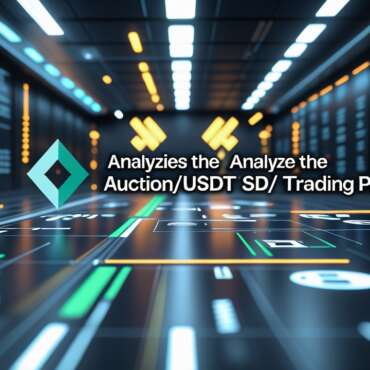“`html
Introduction to USDT/XLM Trading Strategies
Cryptocurrency trading has evolved significantly, with pairs like USDT XLM gaining traction among traders. USDT (Tether) is a stablecoin pegged to the US dollar, while XLM (Stellar Lumens) is a fast and efficient blockchain for cross-border transactions. Trading the USDT XLM pair requires a deep understanding of market trends, technical analysis, and risk management. In this comprehensive guide, we’ll explore advanced trading strategies, market dynamics, and tools to help you maximize profits while minimizing risks.
Understanding the USDT/XLM Pair
The USDT XLM trading pair combines the stability of a fiat-backed stablecoin with the volatility of a high-potential altcoin. Here’s what you need to know:
Why Trade USDT/XLM?
Stellar Lumens (XLM) is known for its low transaction fees and fast settlement times, making it ideal for traders seeking quick opportunities. USDT provides a stable base currency, reducing exposure to Bitcoin’s volatility. Together, they offer a balanced trading environment.
- Low Fees: XLM transactions cost fractions of a cent.
- Fast Transactions: Settlements occur in seconds.
- Stability: USDT mitigates extreme market swings.
Market Dynamics of USDT/XLM
The USDT XLM pair is influenced by:
- Stellar network developments.
- Regulatory news affecting stablecoins.
- Global adoption of cross-border payment solutions.
Technical Analysis for USDT/XLM Trading
Successful trading relies on interpreting price charts and indicators. Below are key techniques for analyzing the USDT XLM pair.
Support and Resistance Levels
Identifying key price levels helps predict reversals or breakouts. Use historical data to spot where XLM has struggled to fall below (support) or rise above (resistance).
Moving Averages
Simple Moving Averages (SMA) and Exponential Moving Averages (EMA) smooth out price fluctuations:
- 50-day SMA: Indicates medium-term trends.
- 200-day SMA: Signals long-term market direction.
Relative Strength Index (RSI)
RSI measures overbought (>70) or oversold (<30) conditions. For USDT XLM, an RSI below 30 may indicate a buying opportunity.
Advanced Trading Strategies
Master these strategies to optimize your USDT XLM trades.
Scalping
Scalpers profit from small price movements by executing multiple trades daily. Key tips:
- Use tight stop-loss orders.
- Focus on 1-minute or 5-minute charts.
- Leverage high liquidity exchanges.
Swing Trading
Swing traders hold positions for days or weeks, capitalizing on medium-term trends. Essential tools:
- Fibonacci retracement levels.
- MACD (Moving Average Convergence Divergence).
Arbitrage
Exploit price differences across exchanges. For example, buy USDT XLM on Exchange A at a lower price and sell on Exchange B where it’s higher.
Risk Management in USDT/XLM Trading
Protect your capital with these risk mitigation techniques.
Stop-Loss and Take-Profit Orders
Automate exits to lock in profits or limit losses. For example:
- Set a stop-loss at 2% below entry.
- Take-profit at 5% above entry.
Position Sizing
Never risk more than 1-2% of your capital on a single trade. Calculate position size based on stop-loss distance.
Fundamental Analysis for USDT/XLM
Beyond charts, assess these factors impacting USDT XLM.
Stellar Network Updates
Follow Stellar’s official website for protocol upgrades or partnerships.
Stablecoin Regulations
USDT’s value depends on Tether’s reserves. Monitor news from Tether’s transparency reports.
Tools for USDT/XLM Traders
Enhance your trading with these resources.
Trading Platforms
Portfolio Trackers
Use apps like Delta or Blockfolio to monitor holdings.
Case Study: Profitable USDT/XLM Trade
A trader capitalized on a 15% XLM rally by:
- Identifying an RSI oversold signal.
- Entering at $0.10 with a 2% stop-loss.
- Exiting at $0.115 (15% gain).
Common Mistakes to Avoid
Steer clear of these pitfalls in USDT XLM trading:
- Overtrading: Stick to your strategy.
- Ignoring fees: High-frequency trades erode profits.
Conclusion
Mastering USDT XLM trading requires technical skills, risk discipline, and staying updated on market trends. Whether scalping, swing trading, or arbitraging, apply these strategies to navigate the volatile crypto markets effectively. For further learning, explore our advanced trading guides.
Contact Us
If you have questions or need further information regarding USDT XLM or our services, please contact us:
- Email: usdtflasherpro@gmail.com
- Phone: +44 7950911750
“`

